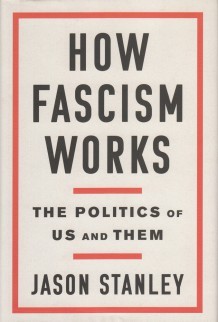Taylor reviewed How fascism works by Jason Stanley
Review of 'How fascism works' on 'Goodreads'
4 stars
Ten short and sweet chapters, delivering on the title. Written as an overview for a wide audience, this falls under the genre of handbooks for the current global climate, like Snyder’s On Tyranny and Gessen’s Surviving Autocracy. Like Snyder, Stanley is also a professor at Yale lending his cautionary advice to the current moment.
This is key reading for understanding the barrage of changes that accompany a power grab, and especially helpful in understanding those who support the attempts despite all odds. Each topic flows into the next, highlighting the power of creeping fascism. The author includes historical parallels and insight into modern applications. His topics aren’t anything new on the subject, but this is likely the clearest and most direct collection of them.
"The most telling symptom of fascist politics is division. It aims to separate a population into an 'us' and a 'them.’"
"...the invention of a glorious past includes the erasure of inconvenient realities. While fascist politics fetishizes the past, it is never the actual past that is fetishized."
"Fascist politics seeks to undermine public discourse by attacking and devaluing education, expertise, and language."
"Fascist politics thrives off the resulting sense of aggrieved loss and victimization that results from the ever more tenuous and difficult struggle to defend a sense of cultural, ethnic, religious, gendered, or national superiority."
"There are more reasons why fascist ideology targets labor unions. Fascist politics is most effective under conditions of stark economic inequality."

